Some civilizations died with great clamour, some died with a whimper, but Hindus - Will we die in the self-effacing silence of secularism?
- In History & Culture
- 07:40 PM, Aug 23, 2018
- Raghu Bhaskaran
One of my favorite short stories is Mulk Raj Anand’s ‘The Lost Child’
A little child who hankers for various things at a fair, but when it gets lost wants nothing but its parents.
Read the story here https://archive.org/stream/TheLostChild-English-MulkRajAnand/lostchild_djvu.txt
The imagery stayed with me and was meaningful in many ways.
For example, answering to the questions,
If God exists, and he has created this universe and life on Earth, what is his objective? What does he want with us (are we not his playthings then, created to amuse him)?
I referenced this story and answered,
Think of the game played by mothers with toddlers. The mother, she would hide her face with her hands and call out for the child. The child in a play room full of distractions will ignore her and be playing with other things, but will eventually seek her, search, hear her voice and signs, tumble and fumble it’s way, grab and pull apart her hands to reveal her face, the sheer joy both of them enjoy at that point is immeasurable. The divine peekaboo.
Now why should the mother do that — why hide, why play — she could always hold the child tightly in her embrace. Or rather why even have a child and all the trouble?
Simply because the mother too wants to experience the joy of this sport — the ‘leela’. And we, though we are a part of the mother, also play and get to experience the joy.
The mother is an analogy for Ishwara, who himself experiences this joy in all the roles. Of course it is for amusement, but there is no he and we, except due to our own ignorance. This Prakriti and Samsara — the world is the playroom.
And when people start asking ‘Why’, that is the start of the journey, where the child stops playing and starts seeking the mother, slowly it will cease to care about all the temptations and distractions, and will cry only for its parents.
Like the child in Mulk Raj Anand’s story.
The analogy can be extended further, though this leela is the same. The mothers, the playrooms, the children are a multitude.
The children rush into play, they create things, compete with each other, cooperate and play too. Sometimes they stumble and get hurt, or hurt each other, they cry in pain. Then the mothers soothe them, sometimes take them out of the play and put them back.
When some children get tired of the play and seeks its mother, who is hidden behind all the things which once were attractions, but are now distractions. Then also children also cry in frustration, but few remain steadfast in seeking the mother until they find her.
The times we cry out, are the times of our suffering, out of ignorance and frustration. The times we are taken out of play and put back, is Mrityu and Punarjanma. When we finally recognize and rush into the embrace, that is Moksha. And Ishwara craves our Moksha as a mother craving her child’s embrace, yet like any good parent, he lets us children go forth and adventure.
There would be no such joy if the child is never allowed to venture.
Yet it is very important for parents to equip the children with things they will need to find their way home. That is what culture, religion, philosophies are about. They equip us for our seeking.
A Christian told me that Hinduism is like huge shopping store and the children are being left unguided in the store, and hence they are confused lot. That is why she thinks the Abrahamic religions with their single choice is better.
And I said, well it entirely depends on the capacity of the child and intentions of the parents. I believe it is better for children to explore, face challenges and then seek out their way, rather than limiting them to a life limited to one dogma. It is possible that many children lose their way, yet the risk must be taken. Even when the child does not like it and cries, it is required of parents to prod it forth to explore.
Abrahamic religions can be considered as leashes which ensure that the children never get to explore beyond the limits of the dogma. The leash also expects all the children, should be tied to the single form of the mother.
That is a kind of parenting as well and we would not interfere, unless there is evident abuse.
So the leash — exclusivity by itself is not the problem. But when it combines with the insistence that every child should be thus leashed irrespective of the parenting, then it becomes a problem.
Supposing in the Mulk Raj Anand’s story, we introduce another character, a Missionary. And the Missionary follows the family as they go to the fair.
He hears the mother teaching the child, ‘Child, in the fair, you be distracted by many things and will get lost, playing with your friends, when you are tired and ready to be back, look for these signs and others who follow those signs, you will find your home then’
Know them by the music they make — Carnatic, Hindustani and such.
Know them by the dances — Bharathanatya, Kuchipudi, Kathak and such.
Know them by the philosophies — Various Darsanas like Vedanta.
Know them by the literature — Vedas, Puranas, Itihaasas, Smritis, Agamas etc.
Know them by the Bhakhti of the saints — Azhwars, Nayanmaars, Tulsidas, Jnaneshwar, Chaitanya, SankaraDeva, Narsi and Tukaram etc. and their compositions
Know them by the Samskaras — like Vidyarambha, Vivaha etc.
Know them by the temples built in different styles— of Dravida, Nagari, Hemadpanti and such.
And many more such things.
But above all know them by the gods — Hari, Shiva, Shakthi, Ganapathi, Skanda and many others. You will know them by their celebration of their Gods. Even those who are Advaita Vedantins, seeking the Nirguna Brahman, will not deny the devatas and their upasana. None will deny how the other worships or the gods worshiped — Nahi Ninda Nyaya.
Once you know them, you join them in the journey, pass on those cultural signs, create new ones for others to find.
That will enable the seeking in you, beyond wealth or success.
And the missionary was listening to all these conversations.
The child ventures forth and plays, and eventually realizes that he is missing his parents, and he looks for his people, as was taught to him.
And instead of the kind hearted man in the Mulk Raj Anand’s story, it is the Missionary who has prepared some traps for the child.
The child hears the familiar strains of Venkatesa Suprabatha. But as he listens he is confused, the words are strange and sound forced. He asks whether it is another version for another god?, They say, ‘No child this the Suprabatha for the only true god — Jesus!’
He sees some people wearing the Saffron. They must be my people, he thinks and asks of them, for which god are you making this padyatra. They say, ‘Jesus’. He asks, is his like Rama or Shiva? They say, ‘No, those are all false gods, Jesus alone is the true son of God’.
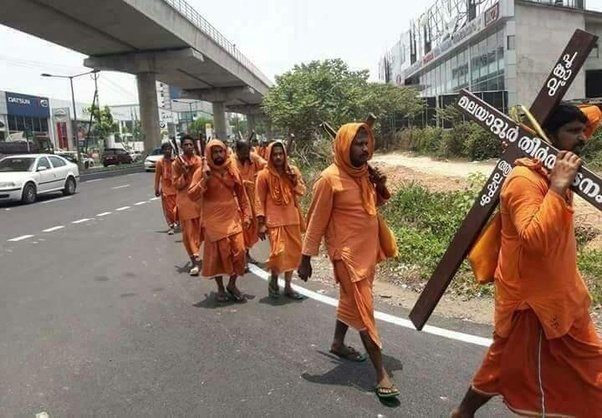
He then sees a Dwajastambha, before a building. He goes in and asks, they say ‘Here we pray to Jesus’, He says,’Like to Krishna?’, They respond, ‘Krishna is actually Christ, the Brahmins corrupted the name’.
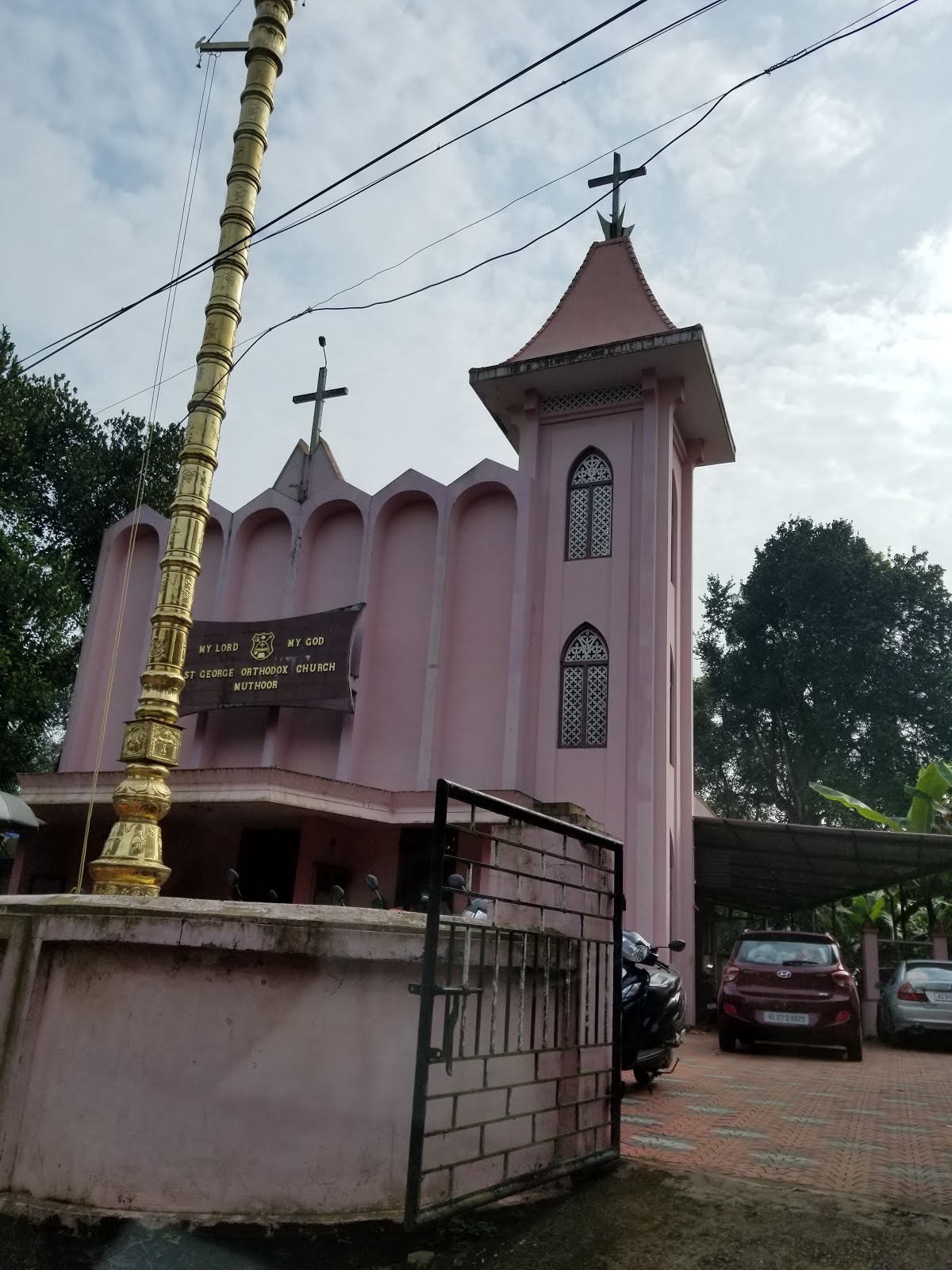
Then he sees a temple in the style his parents had told him about. He asks, ‘Trinity — is it Brahma, Vishnu, Shiva?, but they say, ‘Those are demons, do not take their name in the house of the lord’.
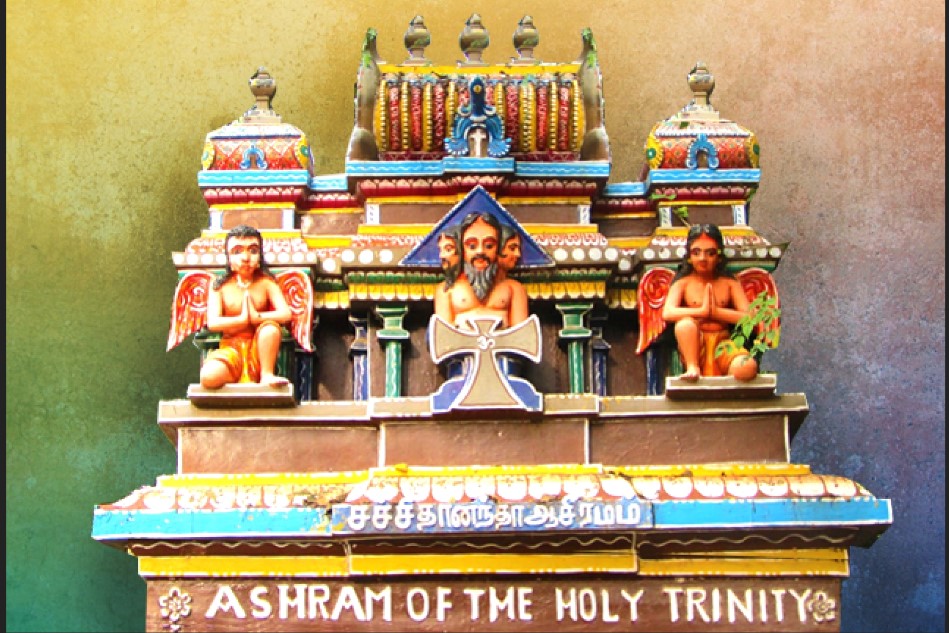
He sees another temple with Shivalinga, But the saffron clad priest tells him, ‘Shiva is actually only Jesus, but the Aryans corrupted the worship.’
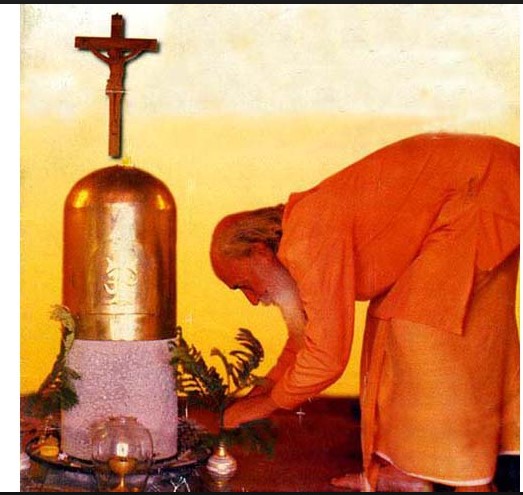
He hears the strains of a Carnatic Krithi, he follows the sound and hears the lyrics. It thoroughly confused him, a song declaring that there is no one equal to Jesus, he wondered if that is in the subjective context, similar to Thiyagaraja’s Krithi on Rama or Gopalakrishna Bharathi’s Krithi on Shiva Sabapathy. But no, they say, ‘Jesus alone is God with his father — absolutely and objectively.’
He sees a familiar face in a video, a carnatic artist who sang on many stages, songs in devotion to Shiva, Shakthi and others. But now he was wearing a crucifix and singing of Jesus. He thinks, ‘Isn’t it only actors who wear costumes, according to the performance?’.
He sees a garden and people praying to a vigraha, and yet again it was Jesus. They call him a ‘Sinner’ and say that Jesus is the original Yogi.
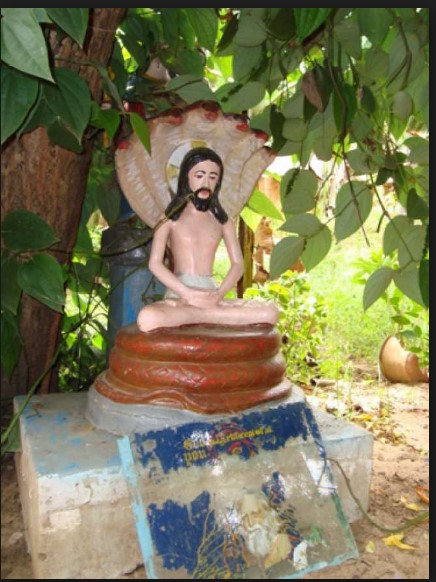
He sees an announcement for a Upanishad Upanyasa and went in. But the lecturer is expounding upon Jesus as the true god of Upanishads, and that Aryans cheated people by misinterpreting them
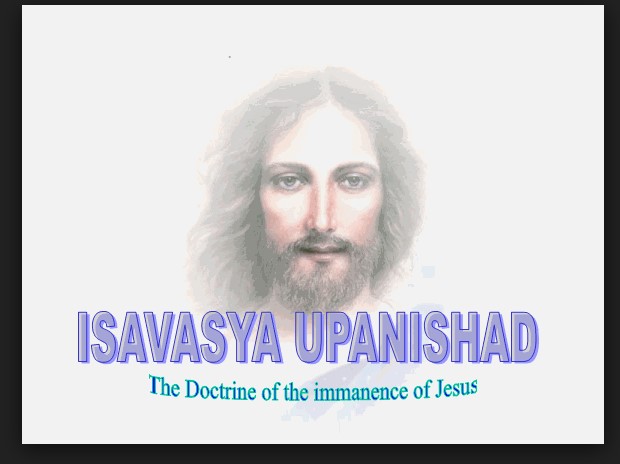
And in another corner, they are chanting yet another familiar sounding Sthothra, but it is again.
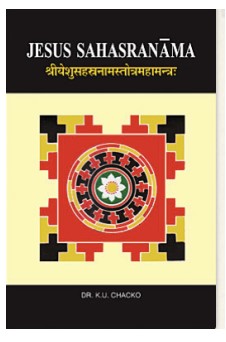
Would he ever find his path to the mother? What would happen to such a child? Wouldn’t it be alienated from its own parents and fostered by the impostors?
In countries with child care subsidy, there is a scam where foster parents seek to take up more and more number of children, so that they can claim more and more benefits. In such large foster families, would children have the freedom to explore their paths or will they be leashed to a strict routine, brainwashed and crushed. All they know would be to perpetuate the same scam when they grow up, a global Ponzi scheme.
Then supposing he meets the fellow seekers and they ask him of his journey.
And he says, ‘I found them, my people, those of my heritage. Indeed they are as told to me. The temples, the music, the arts, the philosophies, the literature are all as described. But you are all wrong about the most important thing, the life-force of the civilization you had described.
‘How so?’, they ask aghast. ‘Did you get confused by the name or the form, for they are innumerable?’
‘I did find them by all those names and forms, yet you are wrong’
‘What did we get wrong, do tell us?’
‘That there are gods like Rama, Shiva etc, that is all wrong. Jesus alone is the true name and the crucifix alone the true form.’
‘Child, Jesus is considered God by many, but those are not the people of your civilization, but another. Respect them and their beliefs, but do not deny others or ours, that is not the way of your forefathers. Seek for the truth’
‘There is nothing to be sought. Everything there is, is in Bible, the true Veda, rest is all the corruption by the Aryans and Brahmins.’
Shocked they cry, ‘You have your father, but don’t you know that there are other fathers for other children. Would you go and tell them that only your father is true and others’ are false? And even if many men resemble your father in features, wouldn’t you know who is yours, won’t you recognize him by a lifetime of love, care and affection?
Similarly, wouldn’t you thus recognize what your Samskriti is, from the millennia of wisdom and values?
How can you make such two mistakes each contradicting the other? Fatherhood is the same, but fathers are various. If someone seeks to impersonate your father in features alone and further insists that he alone is the father and others as false, couldn’t you recognize him as an impostor?
He responds, ‘Why are you shocked? I only followed the instructions given to me. But saw many others of the same features, then how do I know which is the truth and which is the fraud? The Christians explained that such confusions are caused only by Satan, hence Jesus alone is the true god and others as false. You are all possessed by the Satan. I am a Christian now, hear my witness and accept Jesus alone, else you are damned. My forefathers are burning in hell and you will burn too. Repent and convert!’
The child in Mulk Raj Anand’s story, what if when it was lost, a person appears to it, with exactly the same features as its father, an impostor who seeks to kidnap the child and restrict it to the leash of doctrinal mono-vision.
Would it not have been the failure of the parents, not to have taught the child to search beyond mere features?
Would it not have been the failure of the parents, to ignore the declared intentions of the ‘kidnapper’, allow him to borrow their clothes, impersonate their features and do nothing about it?
That would be similar to the failure of Hindu society, when we don’t assert ourselves against the cultural appropriation by exclusivist religions, seeking to convert people.
The markers of culture are like the signboards, left by our ancestors in the search of the mother, Ishwara. They leveraged every aspect of human endeavour towards the seeking of that prime state.
To allow those markers, to be hijacked by people who seek to kidnap our children, we are failing ourselves and will wander ever lost.
The Vedantic excuse, that since all these still happen within the Leela of Ishwara, so we need do nothing, that is not acceptable. Because by doing nothing, we delay the moment we all reach the embrace of the mother.
Even as culture is appropriated, even when the churches declare ‘inculturation’ as a policy, even when they declare the death of theo-diversity as the goal, to be mute in ‘Secular Silence’…
Well, some civilizations died with great clamour, some died with a whimper, but Hindus, will we die in the self-effacing silence of secularism?
Note: Images have all been given by the author, no copyright infringment intended.



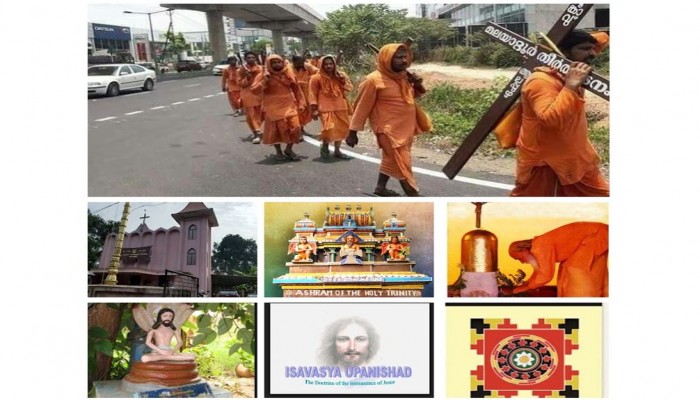
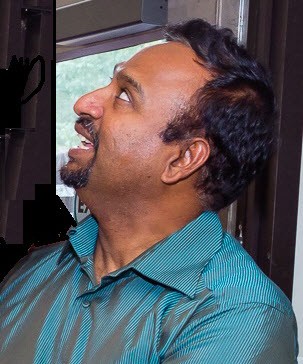


Comments